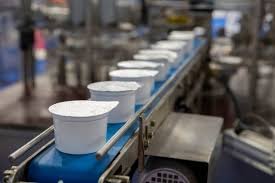Food Analyst

In the intricate web of the food industry, where taste, safety, and nutrition intersect, one crucial role stands out as a beacon of assurance for consumers and regulators alike: the Food Analyst. These unsung heroes play a pivotal role in ensuring that the food we consume is not only delicious but also safe and compliant with stringent regulatory standards. Let’s delve into the world of Food Analysts to understand the significance of their work and the impact they have on our daily lives.
Defining the Role
A Food Analyst is a skilled professional tasked with the responsibility of analyzing food samples to assess their quality, safety, and compliance with regulatory requirements. Their work encompasses a wide range of tasks, including chemical, microbiological, and sensory analyses. These analyses provide critical insights into the composition, contamination levels, and overall integrity of food products.
Ensuring Safety and Compliance
Food safety is paramount, and Food Analysts are at the forefront of safeguarding public health. They meticulously test food samples for harmful contaminants such as pathogens, pesticides, heavy metals, and toxins. By utilizing advanced laboratory techniques and equipment, they can detect even trace amounts of contaminants that could pose serious health risks if consumed.
Moreover, Food Analysts play a vital role in ensuring that food products meet regulatory standards set by government agencies such as the Food and Drug Administration (FDA) in the United States or the European Food Safety Authority (EFSA) in Europe. They verify labeling accuracy, nutritional content, and adherence to specific quality parameters outlined in food safety regulations. Through their rigorous analyses, they help prevent fraud, mislabeling, and adulteration of food products, thereby upholding the integrity of the food supply chain.
Quality Assurance and Product Development
Beyond safety and compliance, Food Analysts also contribute to the enhancement of food quality and innovation. They evaluate sensory attributes such as taste, texture, aroma, and appearance to ensure that food products meet consumer expectations and preferences. Their insights guide product development efforts aimed at creating new formulations or improving existing ones to cater to evolving consumer trends and demands.
In addition, Food Analysts collaborate with food manufacturers and producers to troubleshoot quality issues, optimize production processes, and enhance product consistency. By conducting thorough analyses and providing actionable recommendations, they help companies maintain high standards of quality across their product portfolios.
Research and Innovation
The field of food analysis is constantly evolving, driven by advances in technology and a deeper understanding of food science. Food Analysts actively engage in research endeavors to develop new analytical methods, improve detection capabilities, and address emerging challenges in food safety and quality. Whether it’s exploring novel techniques for detecting foodborne pathogens or studying the nutritional composition of functional foods, their contributions drive innovation and shape the future of the food industry.
Challenges and Opportunities
While the role of Food Analysts is indispensable, they face several challenges in their quest to uphold food safety and quality standards. Rapid globalization of the food supply chain, emerging foodborne pathogens, and evolving consumer preferences present ongoing challenges that require continuous adaptation and vigilance.
Furthermore, the increasing complexity of food matrices and the demand for faster, more sensitive analytical methods necessitate ongoing investment in research and technology. Food Analysts must stay abreast of the latest developments in analytical instrumentation, data analysis techniques, and regulatory requirements to remain effective in their roles.
However, amidst these challenges lie numerous opportunities for innovation and collaboration. The convergence of disciplines such as food science, microbiology, chemistry, and data analytics opens new avenues for advancing food analysis capabilities and addressing complex food safety and quality challenges.

Conclusion
In a world where food safety and quality are non-negotiable, Food Analysts serve as guardians of consumer health and trust. Through their expertise, dedication, and unwavering commitment to excellence, they ensure that the food we consume is not only delicious but also safe, nutritious, and compliant with regulatory standards. As we navigate the complexities of the modern food landscape, let us recognize and appreciate the invaluable contributions of these unsung heroes who work tirelessly behind the scenes to protect our well-being and uphold the integrity of our food supply.



